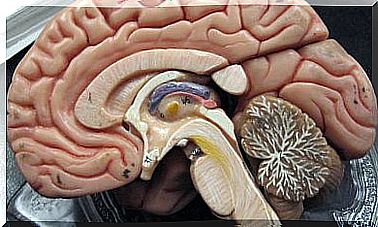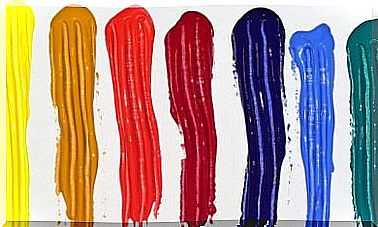Mental Tools When Depression Strikes
Depression is that state of reluctance, immobility and sadness. It is the psychological prison of the soul, the dark cloak of hopelessness and sadness. There are many adjectives that we can use to describe this mood disorder. But, if we have something clear, it is that its effects can be devastating.
According to the World Health Organization, depression is one of the most prevalent mental disorders. And it is estimated that it affects more than 300 million people in the world, which is why it is considered the main cause of disability.
However, there are effective treatments for depression, as well as complementary strategies and techniques to help improve mood.
Next we will take a tour of depression and its main characteristics to end up knowing what mental tools we can carry out in order to feel better. Let’s go deeper.
Depression, a very common disorder that can be treated
Depression is a mood disorder in which a set of symptoms related to reluctance, sadness and the inability to experience pleasure or anhedonia predominate, and which interfere with the person’s day-to-day life.
This disorder usually begins in adolescence or between 20 and 30 years, its prevalence being very high, since between 8% and 15% of people suffer it throughout their lives. Likewise, children are not exempt from suffering from it. In fact, according to the WHO, it is the leading cause of disability worldwide.
Now, depression is not synonymous with weakness of character. Nor is it necessarily linked to lack of affection, childhood trauma or personality disorders. The causes can be very diverse: death of a relative, romantic breakdowns, work situations, a serious illness or even hormonal changes.
Statistics refer that 30% of primary care patients have depressive symptoms, and 10% reach a serious condition. Thus, one in six people can be affected by this disorder.
Symptoms
The symptoms of depression are different for each person. This disorder is a very complex psychological reality that affects many aspects of the body, from cognitive processes to the immune or digestive system. Here are some of its symptoms:
- Change in appetite.
- Fatigue or loss of energy.
- Psychomotor agitation or retardation.
- Low mood most of the day.
- Decreased interest in almost all activities.
- Difficulty falling asleep or excess sleep.
- Feelings of worthlessness, excessive or inappropriate guilt.
- Decreased ability to think, concentrate, or make decisions.
- Recurring thoughts of death or suicidal ideas.
Self esteem and depression
Having a low self-esteem maintained over time makes us much more vulnerable to depression. Not accepting ourselves, as well as evaluating ourselves negatively, leaves us without psychological resources, without weapons to continue fighting for ourselves.
The American Psychological Association (APA) affirms that a weak self-esteem constitutes a risk factor for developing different psychological disorders, among which we can find depression.
Insecurity, fear, negativism or criticism maintained over time can trap us until we feel exhausted and without strength, this being the perfect setting for depression to make its appearance. That is why it is so important to practice self-love and learn to prioritize ourselves.
Physical disorders and depression
Physical disorders can be directly or indirectly related to depression:
- A thyroid deficiency affects hormone levels, leading to depressive symptoms. For example, people with hypothyroidism may experience a certain low, discouragement and apathy, leading to possible depression due to hormonal alteration.
- Brain tumors, multiple sclerosis, Parkinson’s, dementia or sleep apnea can trigger depressive symptoms.
- Anxiety, alcoholism or schizophrenia predispose to its appearance.
Negative thoughts and depression
Depression is a disorder that develops little by little and that sometimes can increase and evolve into a major depressive disorder or dysthymia.
At first, the person is sad, dejected and tired, experiences changes in their sleep habits and appetite for at least two weeks. In addition, he usually avoids eye contact and does not feel like participating in conversations or meetings with others.
Now, among all the symptoms associated with depression, we can highlight the role of negative thoughts both in the appearance and in the maintenance of this disorder in the life of the person. In fact, these largely influence the emotional state.
Thus, when we begin to believe that we are not capable enough to carry out what we want, we constantly criticize ourselves and hardly value ourselves, we are feeding depression. That is, little by little we create reasons to feel sad and depressed.
The psychologist Aaron Beck affirms that people suffer because of the interpretations that they make of the events and not because of the events themselves. In this case, depressed people view the world, others, and themselves through a negative filter. Hence, training in certain mental strategies and skills is considered as a point of support for improvement.
Mental skills to manage depression

Apart from psychological therapy, there are several mental strategies and tools that can help us when it comes to fighting depression. Some of them are the following:
- Identify negative thoughts. It is essential to listen to the internal dialogue we have with ourselves: what we say to ourselves, how we criticize ourselves … For this we can help ourselves with a journal in which we write what we have in mind. In this way, it will be easier to accept it and avoid hurting ourselves.
- Question negative thoughts. Reflecting on the veracity of what we say to ourselves is important. Sometimes we carry the weight of the past or the negative beliefs that were instilled in us and this can harm us. Not everything we think is true. We must question our thoughts because the mind can be very deceitful. In fact, there is usually more than one point of view on an event …
- Transform negative thoughts into positive ones. Reframing our thoughts is always a good option if we want to eliminate their negative power. Now, it is essential to do it well and not get carried away by too naive positivity.
- To meditate. Practicing meditation helps us calm our mental noise, focus our attention on the present and free ourselves from worries, thus protecting us from depression. In addition, being a practice closely related to introspection, it will help us to know ourselves better.
As we can see, there are different options that help our mood to improve when we have depression. However, going to a specialized professional to guide us on the road to recovery is essential.









